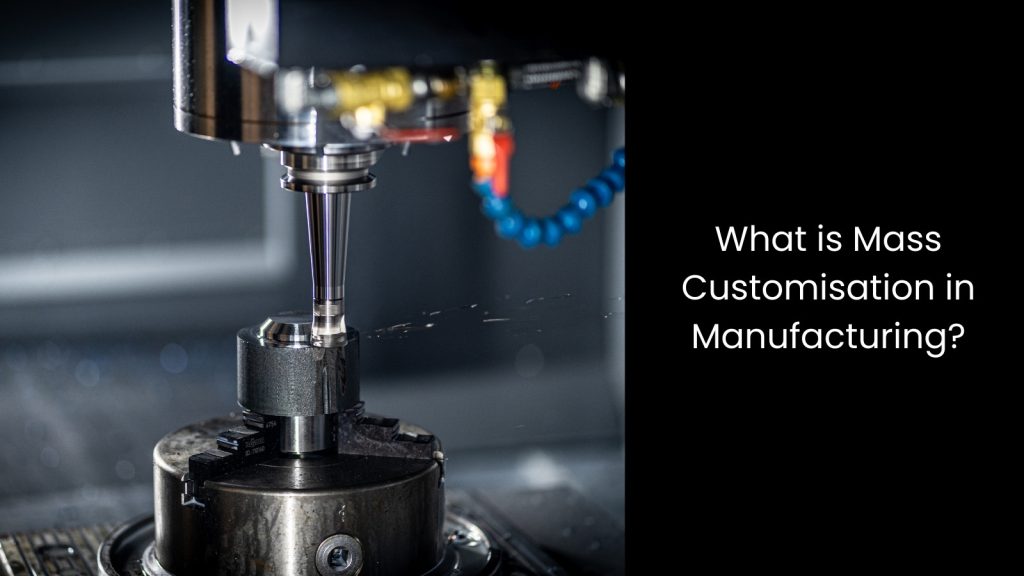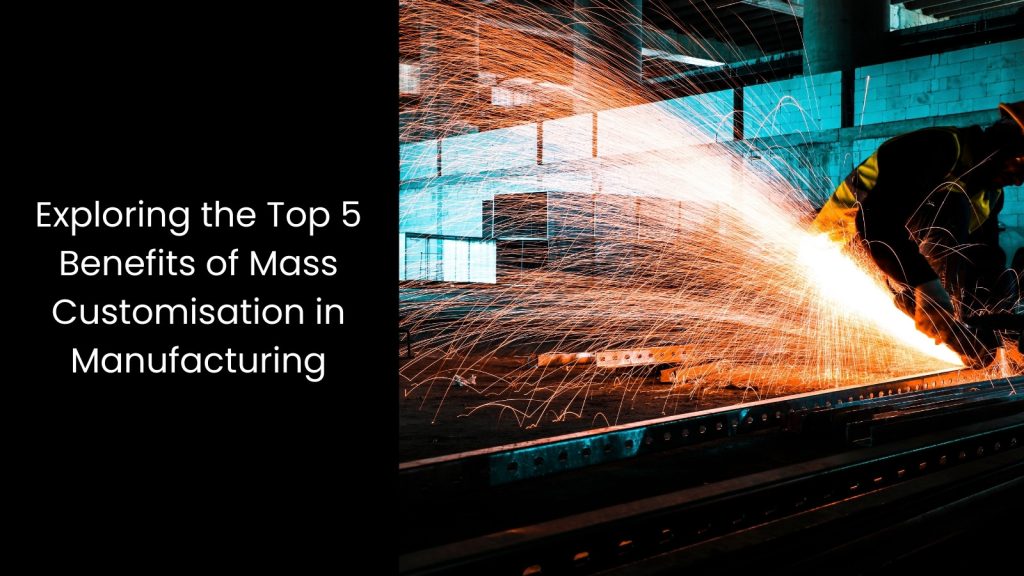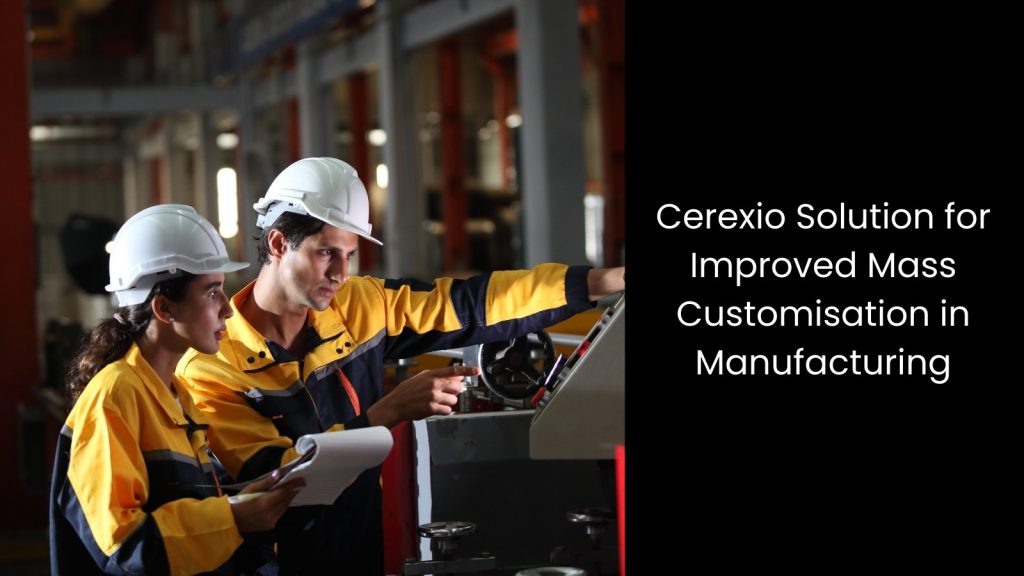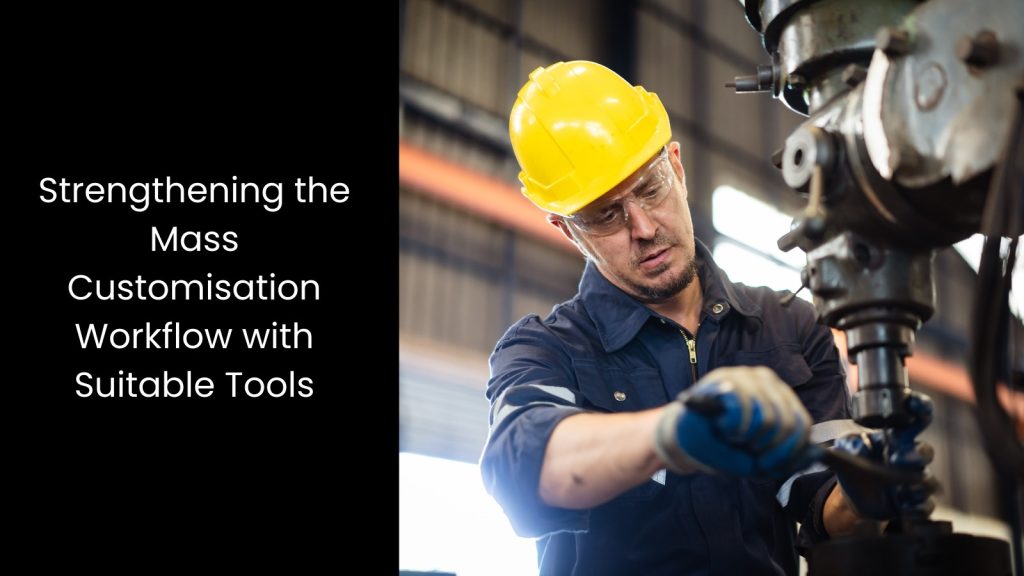Did you know that customisation can boost the profits of a company upto around 40%?In this competitive marketing world, customers crave uniqueness, but businesses also need to keep production smooth and cost-effective. This is where the ‘Mass Customisation’ comes in. Traditional mass production offers speed, while full customisation slows things down. Walking away from such limitations, mass customisation strikes the perfect balance, using smart technology, automation, and flexible manufacturing to deliver tailored products at scale. Companies that embrace this approach do not just meet customer expectations they exceed them while staying competitive.
Let us dive into the top five advantages that make this strategy a game-changer in modern manufacturing in this article.
We will know
What is Mass Customisation in Manufacturing?

- Mass customisation is a process that combines the best of mass production and personalised products. This allows manufacturers to create large quantities of customised goods without high costs. In today’s fast-moving industrial world, companies choose this approach to meet rising customer expectations for unique products while keeping efficiency high.
- Now let us explain why there is so much hype for this process.
- Traditional manufacturing produces identical items, but mass customisation uses advanced technologies like 3D printing, automation, and AI-driven design to tailor products to individual needs. In one way, manufacturers benefit from lower inventory costs since production happens on demand, reducing excess stock and waste. In another way, customers enjoy personalised experiences, which increases brand connection and encourages repeat purchases.
- Unlike old-school customisation, which was expensive and time-consuming, modern mass customisation keeps costs low and production fast. As technology evolves, manufacturers will continue refining this method to balance efficiency, flexibility, and customer satisfaction.
Exploring the Top 5 Benefits of Mass Customisation in Manufacturing

Higher Perceived Value
Mass customisation undoubtedly boosts perceived value as customers see personalised products as more special and exclusive than mass-produced alternatives. People enjoy feeling unique, and when a product matches their specific needs, they normally believe it holds more worth.
This emotional connection makes them more likely to pay extra for custom features, colours, engravings, or tailored specifications.
Businesses take advantage of this demand by offering mass customisation at a slightly higher price, increasing revenue without significantly raising production costs. Unlike generic products that struggle to stand out, customised items create a sense of ownership and satisfaction, making customers feel like they have something designed just for them.
Plus, advanced manufacturing methods like AI-driven design, automated production lines, and modular components allow companies to personalise products without slowing down efficiency or increasing waste. As more people look for individuality in their purchases, brands that provide these options build stronger relationships with their customers, leading to repeat business and long-term loyalty.
Enhanced Customer Satisfaction
The latter boosts customer satisfaction because people love products that match their exact needs and preferences.
It occurs this way: When companies offer personalised options, customers feel heard and valued, which strengthens their connection to the brand. Instead of settling for standard, one-size-fits-all items, they get something that reflects their style, function, or specific requirements. This personal touch makes the shopping experience more enjoyable and increases confidence in the purchase.
Businesses that provide these customisation choices usually see higher customer loyalty because buyers appreciate the effort to cater to their unique demands. When customers receive a product that fits their expectations perfectly, they feel more satisfied and are more likely to recommend the brand to others. This trust creates long-term relationships and encourages repeat purchases. This makes mass customisation a powerful way to keep customers coming back.
So, yes, manufacturing companies that embrace mass customisation not only meet the rising demand for personalisation but also build stronger customer connections. This is what leads to lasting success in competitive markets.
Faster Response to Market Trends
Consumer demands change fast, and companies that rely on traditional manufacturing struggle to keep up since they produce large batches of the same product. With mass customisation, manufacturers can tweak designs, add new features, or modify specifications without tearing down the entire production process.
The good news is that smart technologies like AI-driven design, automated assembly, and modular production systems make this flexibility possible. This lets companies test new ideas without wasting time or materials. When trends shift, businesses do not need to guess what customers want months in advance. They can respond in real time, offering personalised variations that keep shoppers engaged. This ability to adapt keeps brands fresh and exciting, helping them stay relevant in competitive markets.
Customisation also creates a sense of exclusivity, making customers more eager to explore new options tailored to their tastes. Businesses that embrace this approach avoid getting stuck with outdated inventory and instead focus on delivering what people actually want.
Sustainability and Waste Reduction
As you can see, traditional mass production leads to excess inventory, as companies produce large quantities of the same product without knowing exactly how many will sell. Unused stock eventually gets discarded, adding to environmental waste.
However, this is completely different when it comes to mass customisation. Can you guess the reason? With mass customisation, manufacturers only produce what customers actually order, cutting down on overproduction and unnecessary waste. Advanced automation and AI-driven systems make this process fast and cost-effective, ensuring that personalised products do not slow down efficiency.
Smart manufacturing allows companies to optimise material usage, reducing scraps and making the most out of every resource. 3D printing, modular design, and automated precision cutting help minimise leftover materials, making production cleaner and greener.
Going another mile from expectations, energy consumption also drops because companies do not need to run machines for excessive production cycles. As consumers become more aware of sustainability, they prefer brands that offer eco-friendly solutions without compromising on personalisation.
Businesses that adopt mass customisation not only meet customer expectations but also contribute to a more responsible manufacturing system.
Reduced Product Returns
Mass customisation in manufacturing helps reduce product returns. With this process in place, customers get exactly what they want instead of settling for a standard option that might not fit their needs.
When buyers choose their preferred features, sizes, colours, or specifications, they feel more confident about their purchase and are less likely to regret it later. Standard mass-produced items can lead to disappointment when they do not match expectations, causing customers to return them.
However, personalised products eliminate this issue as they align perfectly with individual preferences, reducing dissatisfaction. It is indeed a plus point for manufacturers since fewer returns mean lower costs related to processing, restocking, and reselling returned goods. Customers enjoy a smoother shopping experience, knowing they receive something tailored just for them, which strengthens their trust in the brand. This level of precision also creates stronger brand loyalty, as people appreciate companies that deliver exactly what they expect.
So the reduced return rates not only save money but also contribute to sustainability by cutting down on shipping emissions and wasted materials. As you can see, mass customisation transforms manufacturing into a smarter, customer-focused system that increases satisfaction while making returns a rare problem.
Cerexio Solution for Improved Mass Customisation in Manufacturing

Cerexio MES is the best way to enhance mass customisation in manufacturing as our solution integrates AI, IoT, and automation to enable real-time adjustments, precise production, and seamless order handling. Manufacturers can personalise products efficiently without delays or errors with our solution ensuring higher accuracy, reduced waste, and faster response to customer demands. This smart system streamlines operations, boosting flexibility while maintaining cost-effective, high-quality production.
Strengthening the Mass Customisation Workflow with Suitable Tools

No need to say that mass customisation thrives when backed by the right tools! Smart manufacturing solutions like AI-driven MES, automated design software, and flexible production systems keep workflows smooth and scalable. Businesses that embrace these technologies can deliver personalised products faster, reduce waste, and stay ahead in a market where customers demand uniqueness.
